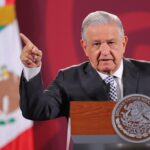
Caracas (Sputnik) – Amid the siege suffered by the oil industry, the Venezuelan government has recovered both gasoline production in the country and the capacities of its main refineries, an expert in public policies for energy, David Paravisini, told Sputnik.
“Last year at this date all the gasoline was imported, and a year later all the gasoline consumed in the country is produced here,” said Paravisini, professor of public energy policies at the Bolivarian University of Venezuela, in conversation with Sputnik. “The refineries were scrap in 2020. Today, the El Palito refinery [in Carabobo, in the center of Venezuela] is effectively jump-started with major repairs that make it as good as new. Puerto La Cruz [Anzoátegui] is starting up, and the refining complex of Paraguaná [Falcón-Zulia, northwest] is producing.”
The oil distribution in Venezuela has also been affected, with the government condemning US sanctions against the oil industry as the root cause.
The government of Nicolás Maduro resorted to purchasing gasoline from Iran to be able to supply the service stations, at which citizens formed long lines, sometimes waiting multiple days, in order to refuel their cars.
Currently the queues have decreased , but fuel supply is dispensed according to the last digits of the vehicle’s license plate.
The former constituent declared that the government has implemented various measures to rebuild the Venezuelan oil industry.
“This development of measures and actions in energy matters, distribution of petroleum products, gasoline, and diesel, occurs within the context of the restructuring of cooperative and administrative sectors of the oil, gas, refining, and petrochemical industry,” said Paravisini.
Last December, President Maduro said that, despite the sanctions, Venezuela managed to buy spare parts for fuel refineries and thus reactivate production in the country.
In this sense, Maduro indicated at the beginning of this year that between January and December 2020 the nation went from producing around 7,000 barrels of gasoline per day (bpd) to 51,000 bpd, representing an increase of 628.57%.
In addition, Maduro reported that from January 1 to May 31, 2020, fuel production was at one million barrels; while from June 1 to December 31 it was 11 million barrels.
Paravisini recalled that in 2014 the state-owned Petróleos de Venezuela (PDVSA) produced 400,000 barrels of gasoline per day.
“In Venezuela, according to the figures provided by PDVSA, in 2014 there was production of 400,000 bpd of gasoline,” he said. “150,000 barrels per day went abroad, equivalent to three million liters per day of gasoline every day—exorbitant volumes. It is in this framework, reshaping this with union and corporate structures, in which the president takes those actions; and in 2018 he began the direct subsidy of the price of gasoline.”
RELATED CONTENT:Venezuela Oil Production Rebounds as Members of Congress Call for Sanctions Relief
Diesel plan
The supply of diesel has also been affected in the Caribbean country, causing long lines of cargo trucks and public transportation vehicles at service stations.
In this regard, on April 21 Maduro suggested a 60-day plan to boost the distribution of diesel in the country for the benefit of the agri-food sector, although he did not give details on what the supply would be like.
Paravisini emphasized that Venezuela is the target of a war by the United States, which seeks to affect the country’s productive capacity in all areas:
“The United States, which declares war on us, is entangled in internal problems that lead them to seek excuses abroad, not only with Venezuela but with other countries such as Russia, and China, seeking solutions to alleviate their internal problems because their demagogic system is worn out.”
Maduro has denounced Venezuela’s subjection to economic persecution which “has illegally prohibited him from importing any inputs, and any products linked to the oil industry.”
The United States government has imposed sanctions on Venezuela since 2017, which affect its oil industry and the important of oil derivatives.
Featured Image: Jeff Pachoud/AFP 2021
Translation: Orinoco Tribune
OT/JRE/GMS/SL
- orinocotribunehttps://orinocotribune.com/author/orinocotribune/
- orinocotribunehttps://orinocotribune.com/author/orinocotribune/April 24, 2024
- orinocotribunehttps://orinocotribune.com/author/orinocotribune/
- orinocotribunehttps://orinocotribune.com/author/orinocotribune/April 23, 2024
Share this:
- Click to share on Twitter (Opens in new window)
- Click to share on Facebook (Opens in new window)
- Click to share on LinkedIn (Opens in new window)
- Click to share on WhatsApp (Opens in new window)
- Click to share on Reddit (Opens in new window)
- Click to share on Telegram (Opens in new window)
- Click to email a link to a friend (Opens in new window)




